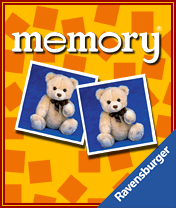
Memory is, in Stephen Fry's words, "the mother of the muses," and the better part of high-functioning intelligence. Take the notable bar scene from the film Good Will Hunting, in which Will uses his uncanny memory to humiliate a smarmy Harvard postgraduate and simultaneously seduce the love of his life in a virtuoso moment of total recall.
Memory is more than just data storage, though. As Proust so eloquently illustrates in his epic series of novels In Search of Lost Time, reality provides the raw data for memory, and the imagination sculpts it into a meaningful shape, retaining the valuable parts and discarding the rest. Being able to remember isn't like being a video camera. It's more like being a whole production studio.
(Bear with me here. I haven't forgotten I'm reviewing a game.)
The premise of Phillip K Dick's science fiction story, We Can Remember it for You Wholesale, argues that memory and identity are indistinguishable. It isn't necessary to actually experience an event to feel as though you were there when it happened. All one needs do is implant the memory. The result is just the same.
Dick's story follows the travails of Doug Hauser, a burly grunt who dreams of the planet Mars. When Hauser attempts to have the memory of a Martian holiday implanted in his brain, the procedure disrupts his mental wiring and uncovers an alarming truth: his whole life is an invention, an inserted memory.
A struggle ensues between the Hauser of yesteryear, who sanctioned the original operation, and the one with whom we've come to sympathise. In the end, the artificial Hauser remains, and we're glad he does because, by virtue of the memories he possesses, he has just as much right to an identity as anybody else.
(Hang in there.)
You are your memories, and if you lose them there's a sense in which you cease to be alive. The brain is a delicate, short-lived machine, and more and more people are spending their twilight years in cognitive gloom, taunted by the glitter and ribbons of their unravelled consciousness, like the last drunken reveller at a party.
As the saying goes, you use it or you lose it. The enormous success of sudoku in recent years is due partly to its addictive gameplay, but also to the coincidence of its arrival with reams of research showing that doing puzzles and crosswords keeps your brainbox in good working order.
In the wake of this revelation, a host of games have appeared lately that give off a psychiatric whiff. Chief amongst them is the excellent Dr. Kawashima's Brain Training on the DS, which records your mental age, rewards frequent mental stimulation with Easter eggs, and routinely informs you that your prefrontal cortex is feeling the benefit.
(Here we are.)
Classic Memory is a lesser member of this new breed, a single subgame based on a premise its creators didn't invent. You are presented with a face-down array of cards, and your task is to find the matching pairs amongst them. There are three difficulty modes, meaning three different quantities of cards to play with, and the game keeps a record of the number of moves you've taken and the time you took to take them all. But that's about it.
Hence all the waffle. There really is nothing else to talk about.
An astonishingly simple idea, Classic Memory partly redeems itself with crisp graphics and a polished musical score. Whilst not an original or very exciting affair, it's the kind of game that you can happily tinker with while you wait for the adverts to finish, and because doing so may sharpen up your memory a little, it might even be good for your mental health.
However, for all the meagre consolations, Classic Memory is neither as original nor as fun as a single subgame in a title like Crash Boom Bang or Ibiza Beach Party, and the chances are it'll be comfortably outshone by the games that came free with your phone. You deserve better.
Classic Memory

